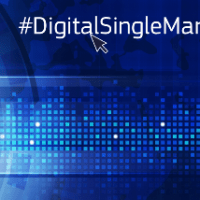The Data Transparency Lab is a collaborative effort between universities, businesses and institutions to support research in tools, data, and methodologies for shedding light on the use of personal data by online services, and to empower users to be in control of their personal data online. In order to support research in these areas, DTL will award research grants to academic institutions worldwide. Such grants come in the form of a lump sum of up to 50K euro that is awarded to successful applicants for pursuing DTL related research in any of the following topics:
Topics, Tools, Platforms, Measurements, and Methodologies for:
Reverse-Engineering Personal Data Usage in Online Services (e.g., advertising, recommender services, pricing and availability of goods & information):
— Behavioral targeting
— Context / Location-based targeting
— Social graph-based targeting
— Involuntary (or implicit) customization / targeting
Detecting Personal Data Gathering by Online Services:
— Techniques for finger-printing and tracking users
— In-app tracking and targeting
— Information leakage from applications and platforms
— Cross-platform/domain information/profile trading, aggregation, fusion
Privacy-preserving Personal Data Analytics/Management:
— Anonymizing platforms
— Sharing and hosting platforms for privacy-sensitive datasets
— Data encoding schemes and privacy by design
— Advertising-friendly privacy-preserving tools and platforms
Raising User and Societal Awareness:
— HCI issues with understanding privacy threats, policies, & implications
— Measuring the value of personal information
— New information marketplaces
— Impact of personalized services — implicit discrimination, personal filter-bubbles, & societal polarization
— Privacy / anti-discrimination laws and their implications for personalized services
The grants are aimed towards supporting fully or partly the work of a Principal Investigator (PI) and at least one PhD student or a postdoc for a period of approximately a year. Ideally, they should produce software tools and platforms that enable end-users to better understand or control how their personal information is being collected and used in deployed online services. Successful applicants are expected to present their results in the annual DTL workshop and acknowledge the funding source but beyond that there is no other reporting obligation.
Program Committee
Applications will be evaluated by a committee of experts composed of:
| Steering Committee |
| Alex ‘Sandy’ Pentland MIT Connection Science |
| Alina Hua Mozilla |
| Pablo Rodríguez Telefonica Research |
| Jeni Tennison ODI |
| Committee Chairs |
| Krishna Gummadi Max Planck Institute for Software Systems |
| Nikolaos Laoutaris Telefonica Research |
| Committee Members |
| Alessandro Acquisti Canergie Mellon University |
| John W. Byers Boston University |
| Claude Castelluccia INRIA |
| Augustin Chaintreau Columbia University |
| Jon Crowcroft University of Cambridge |
| Paul Francis Max Planck Institute for Software Systems |
| Tristan Henderson University St. Andrews |
| Christian Kreibich ICSI Berkeley |
| Balachander Krishnamurthy AT&T |
| Alan Mislove Northeastern University |
| Sue Moon Kaist |
| Arvind Narayanan Princeton University |
| Andrew Odlyzko University of Minnesota |
| Nuria Oliver Research Telefonica |
| Salvatore Ruggieri UNIPI |
| Matthew Smith Bonn University |
Important dates for the submission/evaluation process are provided below:
— Submission deadline: May 15, 2015
— Notification of acceptance: 2 weeks from date of submission.
— Contract signing: June-July (tentative)
The simple application process must include:
— A main description of up to 3 pages (9pt font) explaining succinctly the main idea, its relevance to DTL, what will be produced (tool, dataset, platform, etc), and the main innovation with respect to current state of the art in the area.
— CV of Principal Investigator and main student (2 pages each).
Both documents should be submitted as a single PDF file along with applicant information at the DTL HotCRP submission site: https://dtlresearch.tid.es/
DTL has also available the following communication channels:









